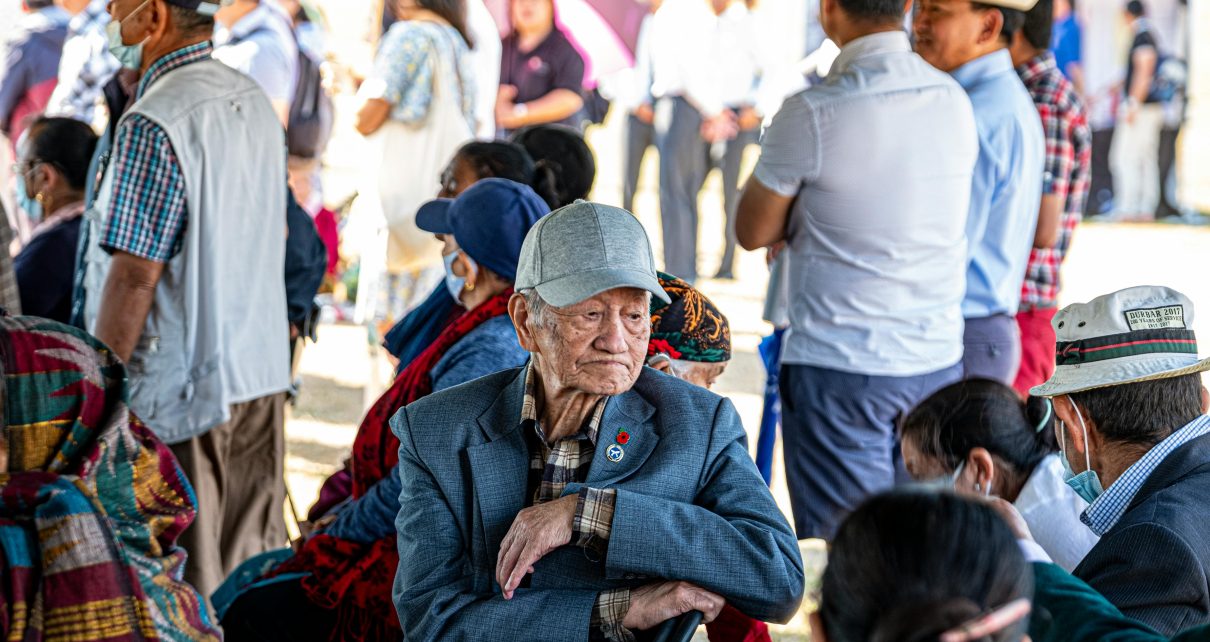The Link Between Military Service and Asbestos Exposure
Many veterans may not realize the connection between their service and potential asbestos exposure. During military service, particularly in ships, vehicles, and buildings constructed before the 1980s, asbestos was widely used for its heat-resistant and insulating properties. Sailors, mechanics, construction workers, and many others who served in the Navy, Army, Air Force, or Marines could have been exposed to this dangerous material. This widespread use means a significant number of veterans may be at risk for developing asbestos-related diseases later in life. Understanding this link is the first step in seeking compensation if a diagnosis occurs.
Navigating Asbestos Exposure Claims for Veterans
Filing a claim for asbestos exposure can seem complicated, especially for veterans. The process often involves proving that the asbestos exposure happened during military service and that it led to a specific illness. This requires careful documentation and a clear understanding of how the claims process works. It’s important to gather all relevant service records and medical information. Many veterans find that seeking help from professionals experienced in these specific types of claims makes the process much smoother. You can find more information about eligibility criteria on pages like military service and asbestos.
Key Factors Determining Veterans Asbestos Trust Fund Eligibility
Several factors play a role in determining if a veteran is eligible for asbestos trust fund compensation. These typically include:
- A confirmed diagnosis: You must have a medical diagnosis of an asbestos-related illness, such as mesothelioma, lung cancer, or asbestosis.
- Proof of exposure: Evidence is needed to show that you were exposed to asbestos during your military service. This can include service records, witness testimonies, or documentation about the types of jobs you performed.
- Timeline: The diagnosis must be linked to the period of exposure, which can sometimes be decades later due to the long latency period of these diseases.
- Trust fund criteria: Each asbestos trust fund has its own specific requirements for claims, which must be met. Understanding these requirements is key to a successful claim, and resources are available to help with qualifying for asbestos claims.
Criteria for Asbestos Trust Fund Claims
To successfully file a claim with an asbestos trust fund, veterans must meet specific requirements. These criteria are in place to verify the legitimacy of the claim and ensure that compensation goes to those genuinely affected by asbestos exposure. Meeting these standards is the first step toward receiving financial assistance.
Establishing a Diagnosis of an Asbestos-Related Illness
The primary requirement for any asbestos trust fund claim is a formal diagnosis of an illness directly linked to asbestos exposure. This means a medical professional must confirm that the veteran suffers from a condition such as mesothelioma, lung cancer, or asbestosis. Without this medical confirmation, a claim cannot proceed. The diagnosis needs to be specific and supported by medical evidence. For instance, a doctor’s report detailing the type of cancer and its presumed cause is often necessary. This is a key part of proving your case, as outlined on pages discussing eligibility asbestos diagnosis.
Proving Asbestos Exposure During Military Service
Beyond a medical diagnosis, claimants must demonstrate that their asbestos-related illness resulted from exposure during their military service. This involves showing a connection between the veteran’s time in the service and the presence of asbestos. Many military jobs, particularly those involving shipbuilding, construction, or mechanical work, put service members at high risk. Evidence might include service records, witness testimonies from fellow veterans, or documentation of asbestos use in specific military bases or vessels. Proving this link is often the most challenging aspect of the claim process. Surviving spouses or loved ones may also be eligible to file a claim if they can prove the veteran’s exposure and subsequent illness veterans asbestos claims.
The Role of Medical Records and Documentation
Thorough documentation is absolutely vital for a successful asbestos trust fund claim. This includes:
- Medical Records: All diagnostic reports, treatment plans, and physician’s notes related to the asbestos-related illness.
- Service Records: Documents that detail the veteran’s military occupation, duty stations, and any specific roles that may have involved asbestos exposure.
- Exposure Evidence: Any available proof of asbestos presence in the work environment, such as photographs, company documents, or statements from colleagues.
Gathering and organizing these documents meticulously helps build a strong case and supports the claim that the illness is a direct result of military service.
Types of Asbestos-Related Diseases Covered
When veterans file claims for asbestos exposure, the focus is often on specific illnesses linked to this dangerous mineral. It’s not just about having been exposed; it’s about developing a condition that asbestos is known to cause. Understanding these diseases is key to a successful claim.
Mesothelioma and Its Connection to Military Service
Mesothelioma is a particularly aggressive cancer that affects the lining of the lungs, abdomen, or heart. It’s almost exclusively caused by asbestos exposure. Many veterans served in roles where they worked directly with asbestos-containing materials, such as in shipbuilding, construction, or engine rooms. This direct contact significantly increases the risk of developing mesothelioma later in life. If a veteran has been diagnosed with mesothelioma, and their service history shows potential exposure, they often have a strong case for benefits. The VA recognizes mesothelioma as a service-connected disability, and many asbestos trusts also provide compensation for this diagnosis. You can find more information about benefits for veterans with asbestos-related diseases at VA asbestos benefits.
Lung Cancer and Asbestos Exposure in Veterans
While not as exclusively linked to asbestos as mesothelioma, lung cancer is another serious illness that can result from asbestos exposure. Veterans who were exposed to asbestos and also have a history of smoking face an even higher risk. The combination of these factors can be particularly devastating. Proving that asbestos exposure contributed to lung cancer requires careful documentation and medical evidence. It’s important to show that the asbestos exposure was a significant factor in the development of the disease, even if other factors were present. The military environment often exposed personnel to various airborne irritants, and asbestos was a common one.
Other Asbestos-Induced Conditions
Beyond mesothelioma and lung cancer, asbestos exposure can lead to other health problems. These include:
- Asbestosis: A chronic lung disease that causes scarring of the lung tissue, leading to shortness of breath and reduced lung function.
- Pleural thickening: This condition involves the thickening and scarring of the pleura, the membranes that surround the lungs. It can cause chest pain and breathing difficulties.
- Certain other cancers: While less common, some studies suggest links between asbestos exposure and other cancers, such as laryngeal or ovarian cancer.
Veterans diagnosed with these conditions, who can demonstrate a link to their military service, may also be eligible for compensation through asbestos trusts or VA benefits. The key is always establishing the connection between the illness and the asbestos exposure during service. Veterans diagnosed with asbestos-related diseases due to their military service may qualify for medical and financial benefits through veterans asbestos claims.
Navigating the Claims Process
Filing a claim with an asbestos trust fund can seem like a big hurdle, especially for veterans who may already be dealing with health issues. It’s not always straightforward, but knowing the steps can make a difference. The goal is to get the compensation you deserve for your illness.
Identifying Relevant Asbestos Trusts
When a company that used asbestos went bankrupt, they often set up trusts to handle future claims. There are many of these trusts, and each has its own rules and payout amounts. Finding the right trust or trusts connected to your specific exposure is the first big step. This might involve looking into the shipyards you served at, the bases you were stationed on, or the specific equipment you worked with. Sometimes, a veteran might have been exposed by multiple companies, meaning claims could potentially be filed with several different trusts. Researching which companies operated in the areas or on the vessels where you served is key.
Gathering Necessary Evidence for Your Claim
To support your claim, you’ll need solid proof. This usually includes:
- Medical Records: Documentation of your diagnosis, like mesothelioma or lung cancer, is vital. These records should clearly link your condition to asbestos exposure.
- Exposure Evidence: This is where your military service comes in. You’ll need to show where and when you were exposed to asbestos. This could involve service records, witness statements from fellow veterans, or even historical documents about asbestos use in the military. Proving exposure during your service is a big part of the claim.
- Trust-Specific Forms: Each trust has its own claim forms and requirements. Filling these out accurately is important. You can often find these forms on the trust’s official website.
Getting all this together can take time, but it’s necessary for a successful claim. If you lost a loved one, you might be looking into VA DIC claims for financial help.
Understanding Trust Fund Payouts and Distributions
Once a claim is approved, you’ll receive a payout. However, the amount can vary. Trusts have different payment schedules and may have set amounts for specific conditions. Some trusts use a “percentage of completion” system, meaning you might get a portion of the total value upfront, with the rest paid out over time. It’s also possible that if a claim is filed after a veteran’s death, the process for filing can be complex, and seeking guidance from an experienced lawyer is often recommended for filing an asbestos claim after death. Understanding how these distributions work helps manage expectations about the compensation you can expect.
Seeking Professional Assistance for Claims
Dealing with asbestos trust fund claims can be complicated, especially when you’re trying to manage a health condition. Many veterans find that getting help from legal professionals makes the process much smoother. These lawyers often have experience with these specific types of claims and know what it takes to build a strong case.
Why Legal Counsel is Important for Veterans
When you file a claim, you need to show proof that your illness is linked to asbestos exposure during your service. This often involves digging through old military records and getting medical opinions. A lawyer can help organize all this information. They understand the deadlines and the specific requirements for each trust fund. Having someone who knows the system can make a big difference in whether your claim is approved. It’s not just about filling out forms; it’s about presenting your case in the best possible light. You can find resources to help you understand your options through organizations that support veterans, like those providing information on VA benefits.
Choosing the Right Legal Representation
Not all lawyers are the same, and it’s important to find one who specializes in asbestos litigation, particularly for veterans. Look for attorneys who have a track record of success with these kinds of cases. Ask about their experience with different asbestos trusts and how they handle client communication. Some firms might focus on specific types of asbestos diseases, so finding one that aligns with your diagnosis is helpful. It’s also a good idea to understand their fee structure upfront. Many asbestos lawyers work on a contingency basis, meaning they only get paid if you win your case.
Maximizing Your Veterans Asbestos Trust Fund Eligibility
To get the most out of your claim, a lawyer can help in several ways:
- Identifying all applicable trust funds: There are many different asbestos trusts, and knowing which ones you qualify for is key.
- Gathering thorough documentation: This includes medical records, service records, and any evidence of your asbestos exposure.
- Estimating your claim’s value: Lawyers can help determine a fair compensation amount based on your illness and its impact on your life.
Remember, pursuing claims through asbestos trusts doesn’t stop you from seeking other forms of compensation, such as VA benefits. A good legal team can help you manage multiple claims simultaneously.





